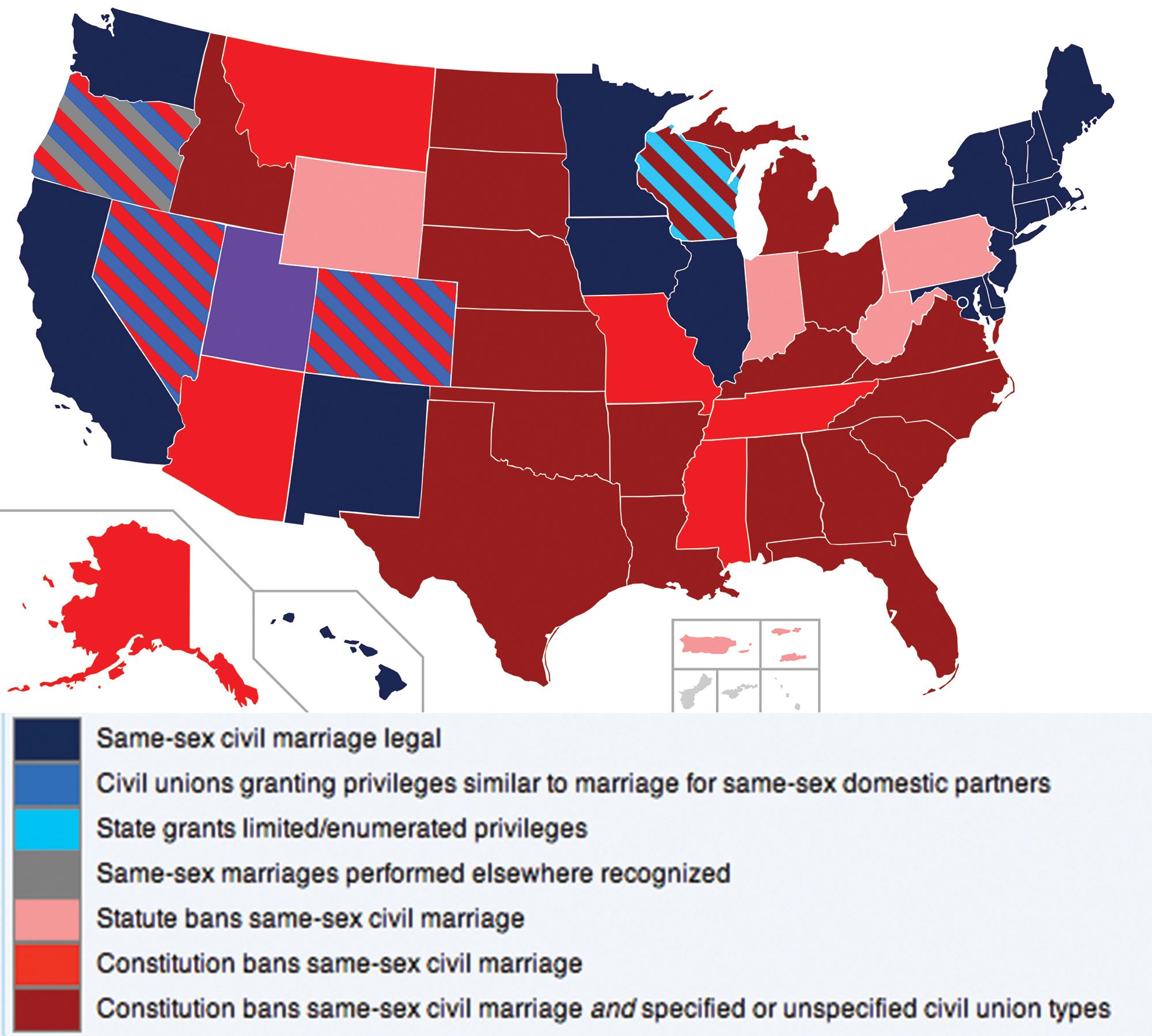Utah same-sex marriages on hold
Gay marriage advocates in Utah said thousands of lives have been thrown into disarray after the Supreme Court decided to put same-sex marriages on hold in the state while a federal appeals court weighs the legalities of the issue.
The high court’s ruling came just days after Utah officials filed an emergency appeal of a Dec. 20 decision by U.S. District Judge Robert J. Shelby, who ruled the state’s ban on same-sex marriage violated the constitutional rights of gay and lesbian couples.
Shelby’s ruling marked a major expansion of gay rights beyond what the Supreme Court had ruled in two landmark cases in June.
Monday’s decision blocked new same-sex unions in the state at least for several weeks. The 10th Circuit Court of Appeals, based in Denver, has told both sides in the dispute to submit legal arguments by the end of this month. The unsigned, one-paragraph order did not spell out the court’s reasoning in the case.
Since the federal court ruling, more than 1,000 gay and lesbian couples have married across Utah.
“This is very disappointing for same-sex couples in Utah, not only for the more than 1,000 couples who have already been married in the last two weeks, but the many couples who have not had an opportunity to marry yet,” said Clifford Rosky, a University of Utah law professor and chairman of Equality Utah, a group that is pushing for gay unions.
“These are couples who love each other, and many of them are raising children together,” he said. “Now that the stay has been granted, these couples have to worry about whether the marriage that they lawfully entered will be recognized by the state and the courts.”
Laura Milliken Gray, a Salt Lake City lawyer who represents numerous mostly lesbian couples, said the court decision threw countless lives into disarray.
“It’s crazy here, chaotic,” she said. “Clients are calling to figure out what’s up with lives. Are they’re legal rights evaporating again, or not? I’m telling them that we’re all still waiting for the dust to clear on the Supreme Court decision but that we believe their marriages were valued when entered. It would be unprecedented and cruel to take them away now.”
She said many clients have adopted children, whose status is at risk.
“There is just so much anguish out there,” Gray said. “I got one phone message just a few moments ago that broke my heart. These couples want to protect their families. They want their children to have two parents and the full rights that other Utah citizens have.”
As she talked, her office phone rang again with another client.
“Right now, this is giving me a big Monday morning headache. But for these couples, it’s incredibly significant. These kids are real live people, and their parents have been temporarily crushed.”
But Rosky emphasized that the court decision was not the end of the battle, and he remained hopeful.
“A stay is only a temporary order; it’s not the same thing as the appeal,” he said. “Because the Supreme Court did not offer any explanation for granting the stay, it doesn’t indicate that the state is likely to win the appeal,” he said. “Instead, the justices likely concluded that it was more prudent to press ‘pause’ for the moment, so that the courts have an opportunity to hear the appeal.”
Polls suggest a growing acceptance among Mormons in general regarding gays. Last year, hundreds of Mormons marched in the gay community’s Utah Pride Festival in downtown Salt Lake City, clapping as drag queens in high heels traipsed among the crowd.
Also, a 2012 poll on civil unions by Brigham Young University’s Center for the Study of Elections and Democracy found that more than half of Mormons favored gay civil unions. Opposition to legal recognition of such unions plummeted this year to just 38 percent, a fall from 69 percent just a decade ago, the poll found.
About 47,000 to 63,000 Utah residents are gay, lesbian or bisexual in a state with a population of nearly 3 million, according to a census analysis by the Williams Institute, a UCLA think tank. A majority live around Salt Lake City.
___
(c)2014 Los Angeles Times
Visit the Los Angeles Times at www.latimes.com
Distributed by MCT Information Services

